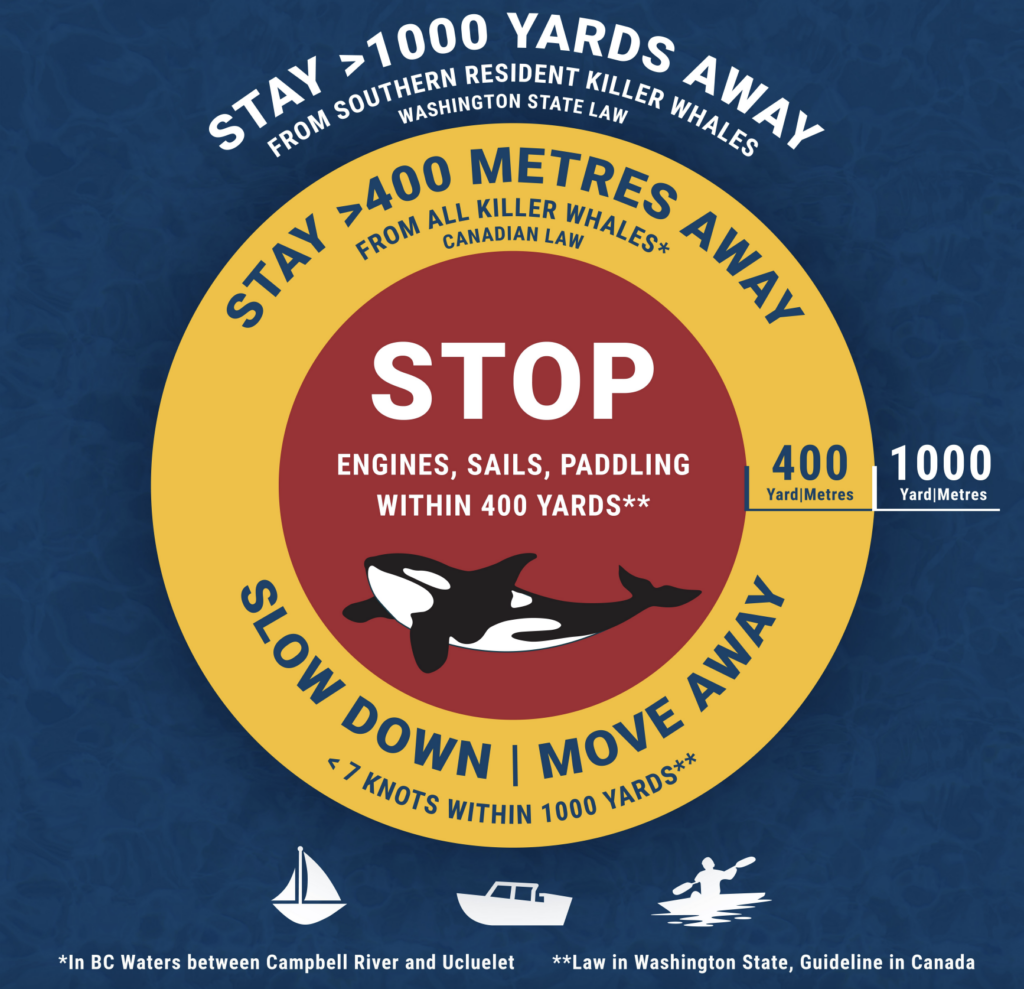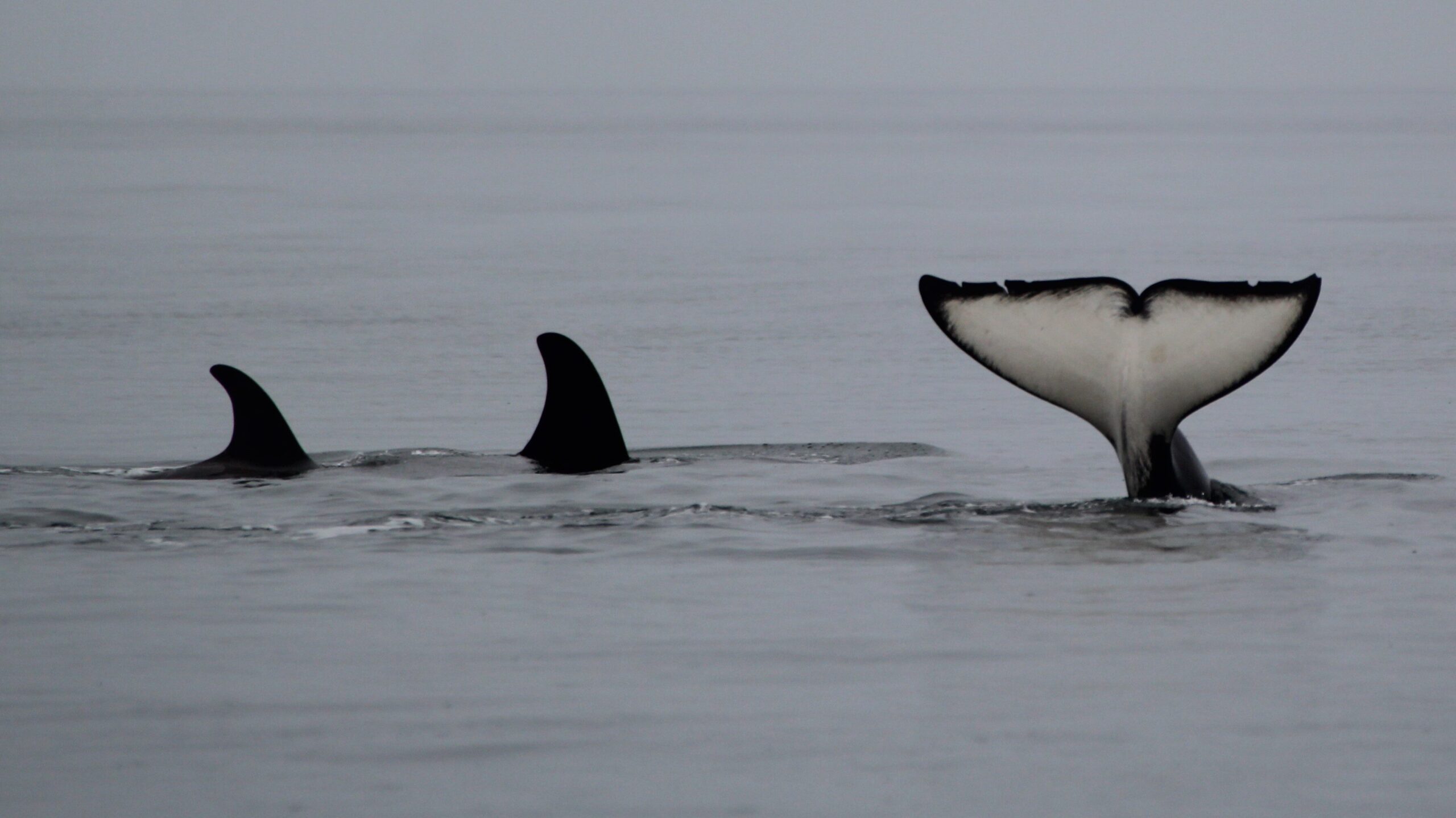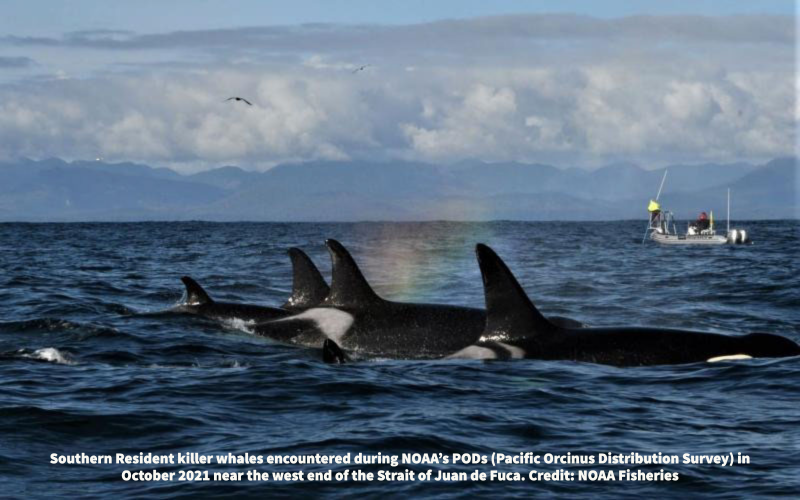Southern Resident killer whales are teetering on the brink of extinction. As of July 1, 2024, the Southern Resident killer whale population was recorded at 73 individuals. These iconic whales depend on the waters of the Salish Sea to forage, rest, and raise their young. However, vessel noise and close approaches disrupt these vital activities, increasing stress and reducing their ability to hunt for their preferred prey, Chinook salmon, which are also endangered.
The population faces significant challenges, including high calf mortality rates, with approximately 50% of calves not surviving their first year. In December 2024, Tahlequah (J35) gave birth to a female calf, J61. Unfortunately, J61 passed away shortly after birth, and Tahlequah was observed carrying her deceased calf for over 11 days, mirroring her similar mourning behavior in 2018.

Effective January 1, 2025, Washington State requires all boaters to:
- Stay at least 1,000 yards (half a nautical mile) away from Southern Resident killer whales at all times.
- If within 1,000 yards but outside of 400 yards, navigate out of their path at a speed of 7 knots or less.
- If a whale approaches within 400 yards, stop engines, luff sails, or stop paddling until the animal moves away, provided it is safe to do so.
Friends of the San Juans led efforts to pass these groundbreaking protections. By collaborating with the Give Them Space coalition, providing resources to legislators, and facilitating expert and community support through endorsements and testimony, Friends helped ensure these vital protection measures became law!

Why Vessel Noise and Proximity Harm Orcas
Underwater noise from boats masks echolocation clicks, making it harder for Southern Residents to hunt their primary food source, Chinook salmon. Loud or unexpected sounds can disrupt social communication and stress the whales, causing them to burn critical energy reserves. With so few Southern Residents remaining, every measure to reduce disturbance matters.
Green Boaters Make a Difference
Boaters, your choices make a difference. Give Southern Residents the space they need to survive and thrive. Together, we can protect these magnificent whales.
Learn More:
- Be Whale Wise: Be Whale Wise Guidelines
- Washington Department of Fish and Wildlife: WDFW Announcement

